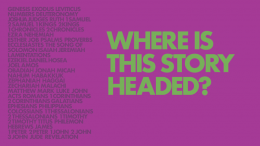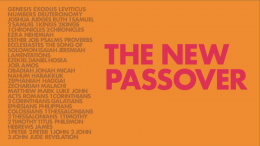
God created us to live in love for others, however, we fall short of this reality. In this sermon, David explores three barriers to loving others: religion, political affiliations and hurry. Addressing these three barriers will not only change your experience of love with others, but also it will change how you love God.

This weekend we continue our study of how attachment theory can be used as a descriptive tool for our connections in relationships with others as well as how we connect with God. How we have connected with others, both positively and negatively, is usually a good approximation for how we think of and connect with God. Some of this appears … Read More

In this sermon, Shawna sits down with Kevin as he explains, more in depth, Attachment Theory: How we experience love, and our relationships with God and others, through a pattern of attachment developed in us as a child. Understanding this can help us see both our natural tendencies in relationships, as well as areas in which we need to experience … Read More

God is love, and our job is to receive and replicate that love. This means that it is crucial that we rightly perceive what God’s love actually looks like, something that some find challenging in the midst of creation that is overrun by violence. How then do we reconcile the nature of God’s love when nature itself seems to point … Read More

Generosity is a tricky subject because so many think it primarily relates to how much a person gives. However, God’s view of generosity is different. It is about learning to live in agape love where we are not doing what we do in order to get more from others, but in order to give and receive love in a community. … Read More

The grand story of the Bible is moving toward an end, one where God will reveal himself as he is. But what does that actually mean? When we take into account the entire biblical narrative, one that is centered around the cross, this means that God will fully unveil his love and we will not only see him as love, … Read More

The New Covenant, which was inaugurated by Jesus and we celebrate with the sign of the communion meal, is a reframing of the Passover Meal from Exodus. In that Old Testament story we see how God defeated evil by allowing evil to act upon itself. In the same way, the cross brings victory over sin and defeats Satan through the … Read More

In this weekend’s sermon, Greg closes our Crux of the Matter series by discussing the importance of zooming in on the hearts of people as we zoom out on our need to be right.

In this weekend’s sermon, Greg provides us with a framework for the importance of prayer. While most of us have been taught about the importance of prayer, it can still feel like an empty duty if we do not have a framework for the reason why prayer matters.

For most of us the Christmas story is a religious story that has become predictable over the years. But to its 1st century audience the Christmas story was anything but religious and predictable. In this Christmas Eve sermon Greg shares, how the Christmas story was irreligious and unexpected to its original audience and how if we look at the story … Read More